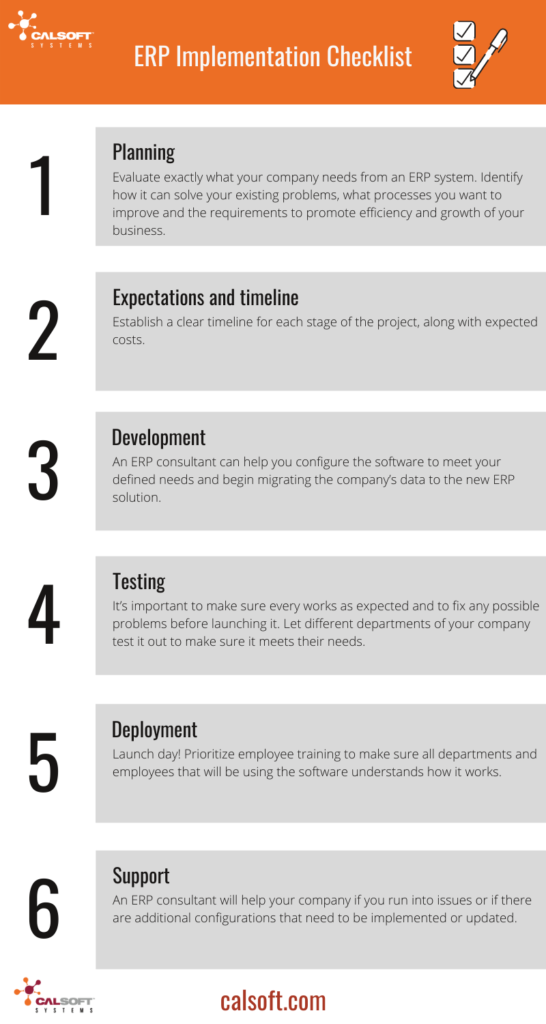Is your growing business feeling overwhelmed by the ever-increasing workload of administrative tasks? Are you finding it challenging to meet the demands of your customers while relying on outdated and inefficient spreadsheet systems? If so, it’s high time to break free from these constraints and discover the transformative power of ERP solutions.
As your business expands, so do the complexities of managing various activities across different departments. The traditional reliance on spreadsheets for accounting, manufacturing, supply chain, sales, marketing, and human resources can quickly become a hindrance rather than a help. Fortunately, there is a better way forward – ERP solutions.
What is ERP and how does it work?
Many organizations are familiar with the term “ERP,” but they may not understand what an Enterprise Resource Planning software can do for their teams.
Imagine a comprehensive and integrated application and database that brings together all your business processes under one roof. With an ERP solution, you can streamline your operations, automate critical tasks, and gain extensive insights into your company’s health and performance. Instead of juggling multiple systems and struggling to maintain accurate and up-to-date information, ERP provides a centralized hub for all your essential functions.
Investing in an ERP solution can help your company bring together different activities, such as accounting, manufacturing, supply chain, sales, marketing, and human resources in one single integrated application and database, instead of having different systems for different departments. ERP systems automate business processes, provide extensive insights and internal management within one system.
Why Is ERP Important for Businesses?
The modern business landscape demands agility and efficiency, this is why ERP is important. Cloud-based ERP solutions enable your team members to access and manage vital information anytime, anywhere, and from any device. With real-time data at their fingertips, your decision-makers can make informed choices, optimize processes, and respond swiftly to market demands. Plus, the ability to collaborate seamlessly across departments ensures that everyone is on the same page, fostering better communication, and facilitating smooth coordination.
So, how do you know if ERP is the right solution for your business?
If you’re wondering whether ERP is the right solution for your business and why ERP is important, take a moment to assess your current systems. Are you grappling with inefficiencies, limited functionality, the inability to integrate with other tools, or the provision of inaccurate information? If any of these challenges sound familiar, it’s a clear indication that investing in an ERP solution is crucial for driving the growth and success of your company.
When outdated systems present inefficiencies, cannot support features you need, lacking integration with other systems, or give inaccurate information, it is time to invest in an ERP system, like Microsoft Dynamics 365, which offers robust features and functionalities to address the diverse needs of businesses.
In fact, most businesses can’t afford to pass on the automation, integration and advantages offered by a comprehensive ERP.
Choosing the right ERP solution
The right ERP system is the one that supports your needs and is scalable to grow with your business. In today’s fast-paced business landscape, leveraging automation, integration, and the advantages offered by a comprehensive ERP solution is not merely an option; it’s a necessity. Businesses across various industries can ill afford to overlook the opportunities for increased efficiency, streamlined operations, and enhanced decision-making that an ERP system brings to the table. The benefits of ERP are far-reaching and can pave the way for sustainable growth and a competitive edge in the market.
There are hundreds of ERP systems out there, but the biggest ERP solutions right now are from SAP, Oracle, and Microsoft Dynamics.
At Calsoft, we’ve partnered with Microsoft to offer ERP solutions tailored to a wide range of industries. Microsoft has been a leader in the ERP software market for many years through its Dynamics product offerings. The ERP solutions provided by Microsoft Dynamics 365 have fully integrated tools for:
- Accounting (GL, AR, AP)
- Bank Management
- Contract/Sales Order/shipping Management
- Purchase order/receiving management
- Inventory / Warehouse Management
- Manufacturing Management
- Field Service Management
- HR/Payroll
- Customer Relationship Management (CRM)
By investing in an ERP solution like Microsoft Dynamics 365, you can overcome the limitations of outdated systems and unlock a world of possibilities. Seamlessly integrating various departments, processes, and data within a unified platform, ERP empowers your organization to make well-informed decisions, optimize operations, and adapt swiftly to evolving market demands. With automation driving routine tasks, your workforce can focus on strategic initiatives and value-added activities that fuel your business’s progress.
Find the one most suitable ERP solution for your business here.
ERP Implementation Steps
Embracing ERP is not just about the software; it’s also about successful implementation. Planning, setting clear expectations, development, testing, and deployment are essential steps to ensure a smooth transition. By following a well-defined implementation checklist and engaging an ERP consultant, you can maximize the benefits of your ERP system and ensure a successful integration within your organization.
To make a successful ERP implementation you can follow the checklist below:
- Planning: Evaluate exactly what your company needs from an ERP system. Identify how it can solve your existing problems, what processes you want to improve and the requirements to promote efficiency and growth of your business.
- Expectations and timeline: Establish a clear timeline for each stage of the project, along with expected costs.
- Development: An ERP consultant can help you configure the software to meet your defined needs and begin migrating the company’s data to the new ERP solution.
- Testing: It’s important to make sure every works as expected and to fix any possible problems before launching it. Let different departments of your company test it out to make sure it meets their needs.
- Deployment: Launch day! Prioritize employee training to make sure all departments and employees that will be using the software understands how it works.
- Support: An ERP consultant will help your company if you run into issues or if there are additional configurations that need to be implemented or updated.
Read more: Tips for A Successful ERP Implementation

Now is the time to revolutionize the way your business operates. Break free from the shackles of spreadsheets and embrace the efficiency, automation, and advantages offered by a comprehensive ERP solution. Contact Calsoft today for a free consultation! Let us help you embark on the journey towards a more streamlined, productive, and successful future.

